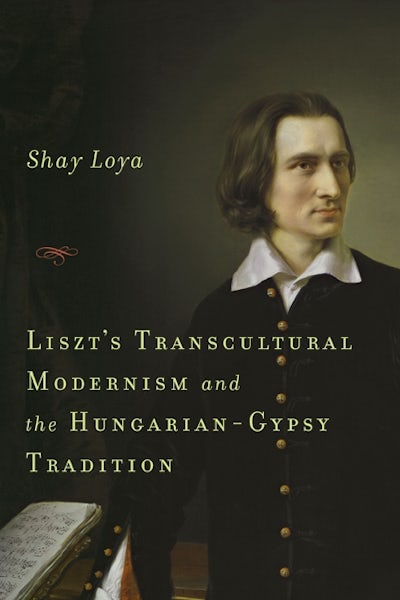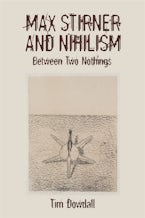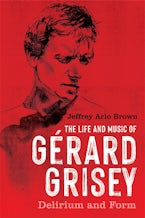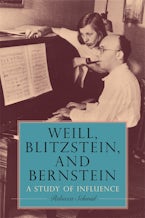
Title Details
362 Pages
22.8 x 15.2 cm
77 line illus.
Series: Eastman Studies in Music
Series Vol. Number:
87
Imprint: University of Rochester Press
Liszt's Transcultural Modernism and the Hungarian-Gypsy Tradition
- Description
- Contents
- Reviews
The first thorough study of Liszt's use of the musical style associated with the Hungarian Roma ["Gypsies"] in his renowned Hungarian Rhapsodies and less overtly Hungarian works.
Some of Franz Liszt's most renowned pieces -- most famously his Hungarian Rhapsodies -- are written in a nineteenth-century Hungarian style known as verbunkos. Closely associated with the virtuosic playing tradition of theHungarian-Gypsy band, the meaning and uses of this style in Liszt's music have been widely taken for granted and presented as straightforward. Taking a novel transcultural approach to nineteenth-century modernism, Shay Loya presents a series of critiques and sensitive music analyses that demonstrate how the verbunkos idiom, rich and artful in itself, interacted in myriad ways with Liszt's multiple cultural identities, compositional techniques, and modernist aesthetics. Even supposedly familiar works such as the Rhapsodies emerge in a new light, and more startlingly, we find out how the idiom inhabits and shapes works that bear no outward marks of nationality or ethnicity. Particularly surprising is its role in the famously enigmatic compositions of Liszt's old age, such as Nuages gris and Bagatelle sans tonalité.
We are pleased to announce that Liszt's Transcultural Modernism and the Hungarian-Gypsy Tradition is one of two winners of the 2014 Alan Walker Book Award, given by the American Liszt Society.
Shay Loya is a Lecturer at City University London and is a board member of the Societyfor Music Analysis (UK).
Some of Franz Liszt's most renowned pieces -- most famously his Hungarian Rhapsodies -- are written in a nineteenth-century Hungarian style known as verbunkos. Closely associated with the virtuosic playing tradition of theHungarian-Gypsy band, the meaning and uses of this style in Liszt's music have been widely taken for granted and presented as straightforward. Taking a novel transcultural approach to nineteenth-century modernism, Shay Loya presents a series of critiques and sensitive music analyses that demonstrate how the verbunkos idiom, rich and artful in itself, interacted in myriad ways with Liszt's multiple cultural identities, compositional techniques, and modernist aesthetics. Even supposedly familiar works such as the Rhapsodies emerge in a new light, and more startlingly, we find out how the idiom inhabits and shapes works that bear no outward marks of nationality or ethnicity. Particularly surprising is its role in the famously enigmatic compositions of Liszt's old age, such as Nuages gris and Bagatelle sans tonalité.
We are pleased to announce that Liszt's Transcultural Modernism and the Hungarian-Gypsy Tradition is one of two winners of the 2014 Alan Walker Book Award, given by the American Liszt Society.
Shay Loya is a Lecturer at City University London and is a board member of the Societyfor Music Analysis (UK).
Preface
Introduction
Transcultural Modernism
Verbunkos
Identity, Nationalism, and Modernism
Modernism and Authenticity
Listening to Transcultural Tonal Practices
The Verbunkos Idiom in the Music of the Future
Idiomatic Lateness
Introduction
Transcultural Modernism
Verbunkos
Identity, Nationalism, and Modernism
Modernism and Authenticity
Listening to Transcultural Tonal Practices
The Verbunkos Idiom in the Music of the Future
Idiomatic Lateness
"Shay Loya's study is a pleasant surprise from beginning to end. [This] painstakingly edited book offers interpretive angles that go far beyond comparatively one-dimensional analytical methods. Readers interested in cultural studies will not only find joy in reading this book but also many stimulating suggestions for dealing more closely with Liszt's music." Tim Becker, DIE MUSIKFORSCHUNG
"Challenging and fascinating. Makes a case for the importance of works by the composer that too often are neglected and undervalued. Provides an insightful description of verbunkos that may be the clearest summary I have read of its pertinent characteristics. A major advantage of the web companion is the ability to listen to the examples (some recordings and others Finale audio files)." NINETEENTH-CENTURY MUSIC REVIEW
"Loya shows a truly exceptional ability to use in a personal and, in a sense, creative manner an extraordinarily wide range of analytical approaches, from the most traditional to the most innovative. A book worth studying and thinking about, lively and stimulating." QUADERNI DELL'ISTITUTO LISZT
"Confronts [the subject's] complexities with impressive erudition and sharp insights. Loya's account of [the] controversy [between Liszt and certain self-styled Hungarian patriots] is extremely valuable and provides a long-needed balance to the more defensive accounts of Klara Hamburger. One valuable aspect . . . is its in-depth presentation of twentieth-century Hungarian scholarship. Insightful hermeneutic and technical analysis. Arouses fresh admiration for the ingenuity and bold originality of Liszt's Hungarian Rhapsodies. An indispensable resource." JOURNAL OF THE AMERICAN MUSICOLOGICAL SOCIETY
"Deftly executed. . . . Must find a place in every comprehensive music library. Summing Up: Essential [i.e., highest category]. Graduate students, researchers, professionals." CHOICE
"The way in which Loya blends detailed technical analyses and provocative poetic or programmatic insights is refreshing. Liszt emerges as the premier exponent of an idiom that...few of his contemporaries -- Hungarian or otherwise -- understood and even fewer ever mastered." MUSIC LIBRARY ASSOCIATION NOTES
Hardcover
9781580463232
December 2011
£110.00 / $130.00
Ebook (EPDF)
9781580467841
December 2011
£24.99 / $29.95
Title Details
362 Pages
2.28 x 1.52 cm
77 line illus.
Series: Eastman Studies in Music
Series Vol. Number:
87
Imprint: University of Rochester Press




















